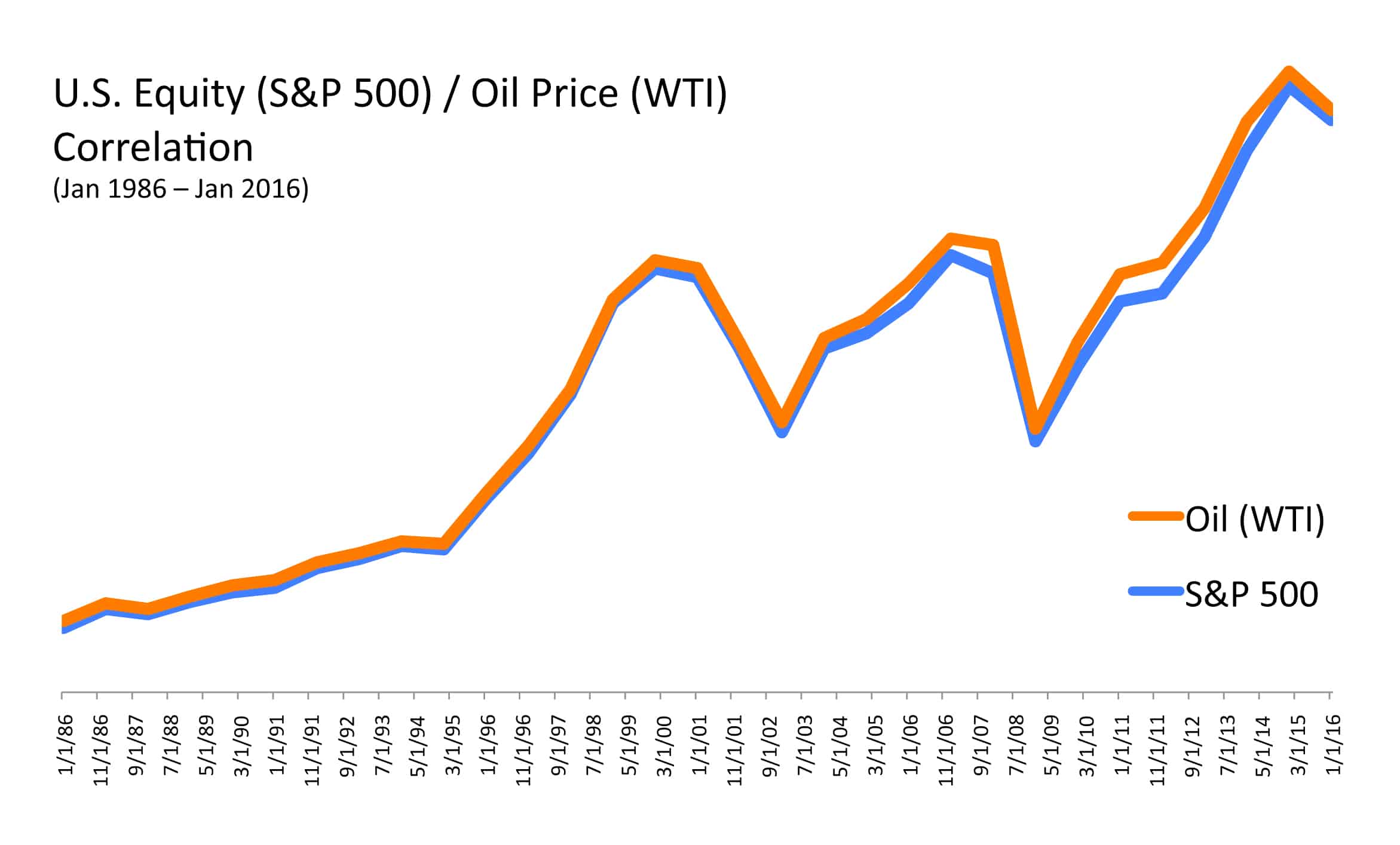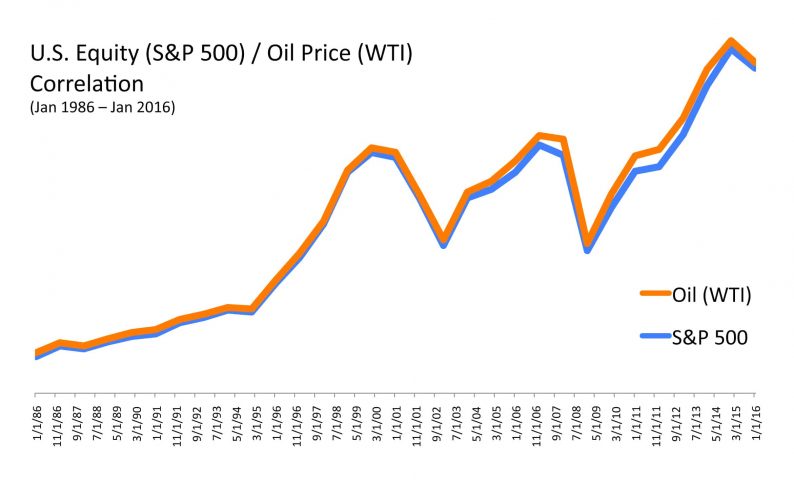Equity markets descended in January alongside oil prices, while testing new lows with a visible increase in volatility. Oil’s dramatic price drop has been a catalyst for stock prices heading lower, a so-called correlation that has actually existed for years.
There are various theories as to how oil and stock prices might be correlated, yet one of the most accepted revolves around macro economic global dynamics.
Oil is the most traded and actively utilized commodity in the world whose consumption represents the economic activity worldwide. So when oil supplies grow and demand drops, markets interpret that as an economic slowdown. Such a slowdown thus migrates into the equity markets, where economic activity and growth is essential for expansion and higher equity prices.
Lower oil prices can also be beneficial for certain sectors, such as transportation and airlines, whose primary expenses are fuel. Economists expect a possible lag effect with recent low oil prices, which may eventually appear on corporate income statements. Obviously, lower oil prices are not conducive to oil industry sector companies, whose margins shrink as oil prices drop.
Some fixed income investors now view U.S. energy stocks as opportunities to earn higher yields on dividends compared to where they were months ago. Lower valuations on energy stocks have led to higher stock dividend yields as prices have fallen.
Sources: Economic Premise #150 World Bank, IMF Research Bulletin, Federal Reserve System Perspective












Leave A Comment